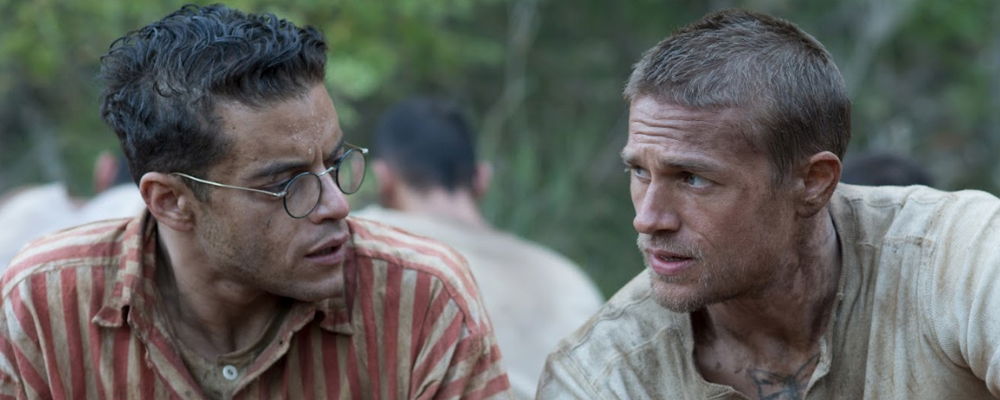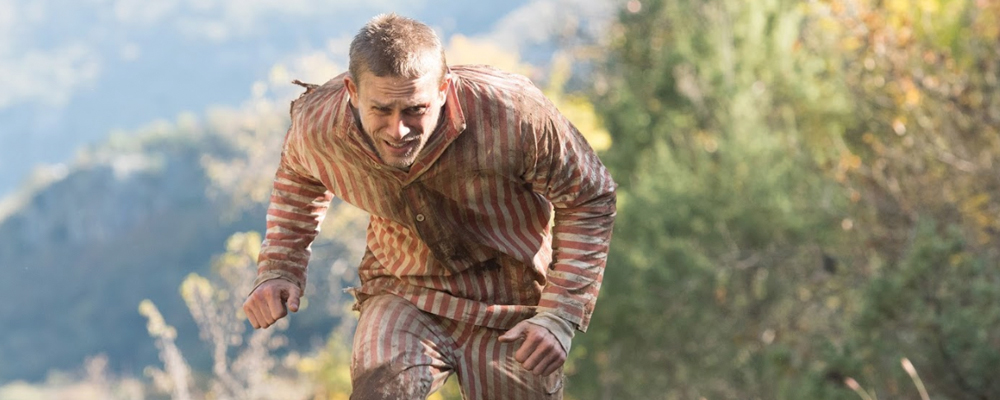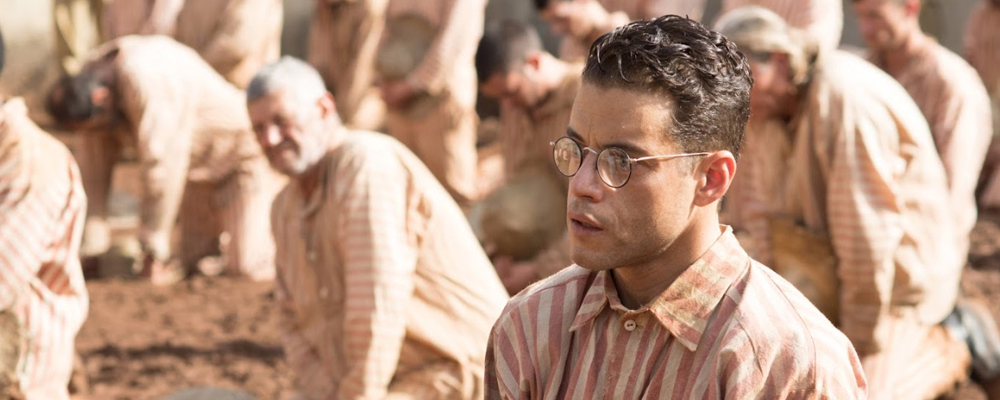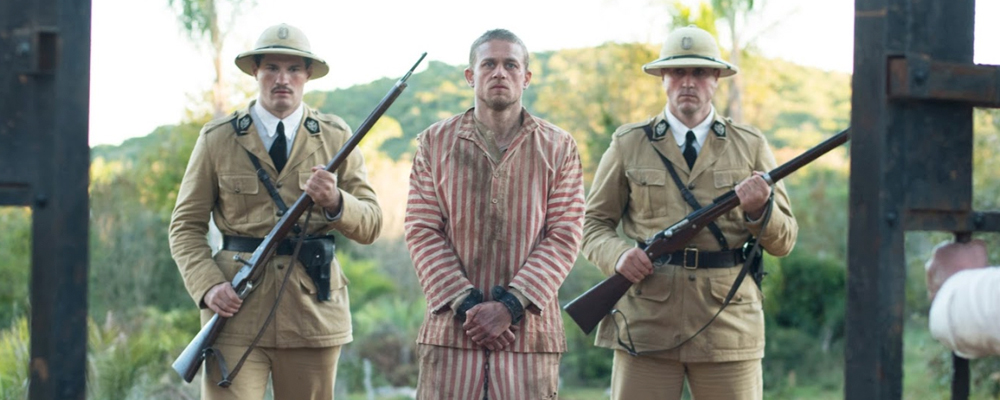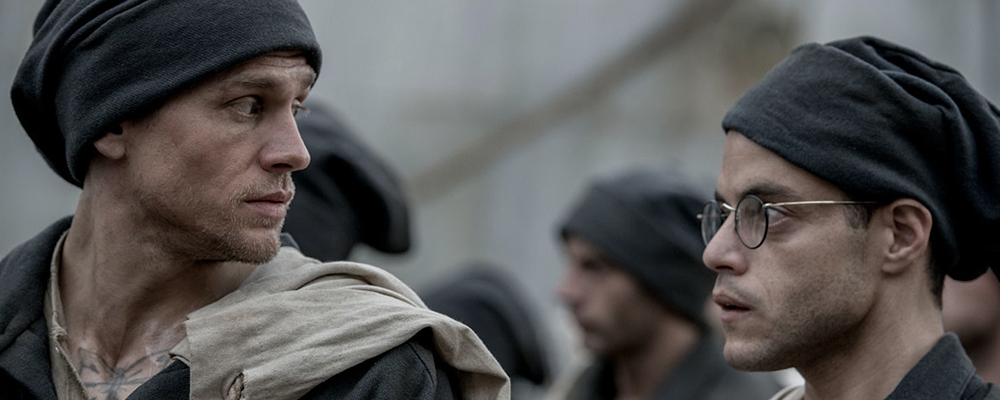Grittier, Bloodier ‘Papillon’ Seeks to Revive Classic Tale of Restless Jailbird
Alci Rengifo
“Papillon” may come across as good moments lost in a brisk movie. This is the latest adaptation of the classic book by Henri Charriere, in which he describes his time as a prisoner at the French penal colony of French Guiana. Charriere always maintained that even the most cinematic moments of his memoir, such as an escape from Devil’s Island, were absolutely true. Whatever the case, it certainly makes for a great story. In 1973 the book was turned into an acclaimed film with Steve McQueen playing Charriere and Dustin Hoffman playing his longtime friend, and fellow inmate, Louis Dega. This new “Papillon” has far more gore and grit, what it lacks is just some more human depth.
It is 1931 and expert thief Charriere (Charlie Hunnam) is living decadently in pre-World War II Paris. When he isn’t cracking open safes he pops champagne and parties with his girlfriend Nenette (Eve Hewson). She constantly tells him to leave the criminal life but the money’s just too good. When Charriere loses the favor of a local gangster, he is framed for murder and sentenced to life in the penal colony of French Guiana. It is a fierce environment where corruption runs high and backbreaking labor is imposed. Overseeing the prisoners is the iron-fisted Warden Barrot (Yorick van Wageningen). Charriere soon meets Louis Dega (Rami Malek), a wealthy fraudster with a scrawny frame. Charriere offers Dega protection from the rougher criminals in the prison if he will fund his plans to escape. But escaping is no easy proposition as few people are trustworthy, the terrain is impossible to traverse and if you succeed but get caught, years in solitary await you. Papillon is stubborn and no matter what tortures the system throws at him, he will continue to scheme and resist, even at the threat of losing his sanity, to taste freedom.
“Papillon” has the makings of a riveting saga, but the struggle is in finding the deeper heart of the tale. Director Michael Noer has a visual style that ranges from stark to wide, managing to create a convincing environment of confined horror. The film’s best features are its cinematography and production design. The world of the French penal colony is baroque and hellish, full of fierce faces, sweat and gruesomeness. In an early scene Dega lays on the bottom of a cell as next to him, a wealthy prisoner is literally disemboweled by a thief searching for money hidden in a swallowed capsule. Prisoners who kill while in custody are guillotined before the other inmates, who are then made to dispose of the body. Essentially the cosmetic details of the original book are here, like precise beats making sure you get the essentials of movie prison life. We get everything a bloody prison flick requires, including ears getting bitten off, tattoo comparisons and an evil warden who taunts Papillon with better soup if he snitches. It’s all well-acted, although the recent “A Prayer Before Dawn” was much more harrowing.
In general “Papillon” seems to follow the overall outline of 1973 movie, but leaves out the richer psychological, dramatic material. The screenplay by Aaron Guzikowski keeps everything stripped and simple. Papillon goes to jail, it’s rough, he wants to get out, and Dega is a scrawny guy who can’t push a cart of rocks. Papillon is thrown into solitary for a year which is covered in a few transitions, we learn nothing about what shaped him as a criminal or as a person. In one scene he tells Dega that his parents were actually school teachers, to which Dega later asks, “what is the son of two school teachers doing in a place like this?” What indeed. The other characters who Papillon encounters simply appear as convenient plot tools. They are put into interesting scenes and moments that can have suspense, but the movie never strives to be anything more than a standard jailbreak of the week movie. The ending on Devil’s Island itself is rushed, and what should be a cathartic moment just feels too easy, too quick after everything Papillon has experienced. When the film does reach some level of deeper, human territory is when Papillon is thrown into solitary confinement, and someone mysteriously begins sneaking coconuts into his daily meals. This gesture of kindness keeps Papillon sane in a time of psychological torture.
It can’t be denied that there is real talent in this movie. The actors, despite the accents, make the film quite watchable. Hunnam has the cold, cunning look of a man of the world, which is why we want to know more about him. He brings the rugged outlaw vibe from his work in the series “Sons of Anarchy.” Rami Malek, himself star of the TV series “Mr. Robot,” again proves he is a superb talent, playing Dega with the twitch and inferiority of a preppy thrown into a brutal world of hardened killers. By the end he manages to become endearing.
“Papillon” is not a bad movie, but more like a work of unfulfilled promise. It establishes a world so fascinating and hellish, from a work of classic autobiography, that it should be more visceral, more riveting as a human drama. Yet it does have features worth seeing, even as it rushes to bust out of jail while leaving the story behind.
“Papillon” releases Aug. 24 in select theaters.

